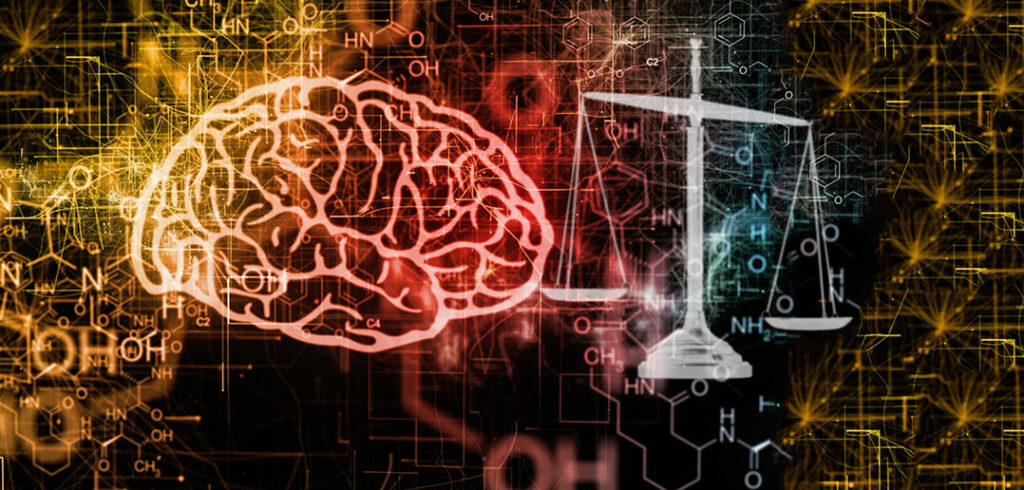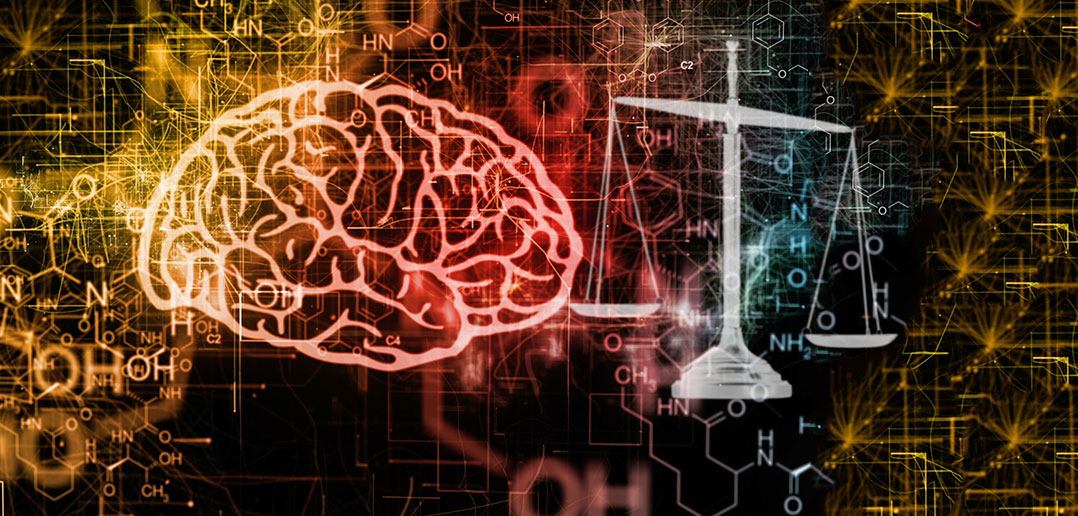
Around 6-7 years back from now, nobody would have been able to even imagine that there can ever be a technology that could interfere with our neural activity and control our cognitive behaviour. If anybody would have even tried to bring in that idea for discussion, people would have laughed and shut them out. And here we are today, where we have reached a point when neurotechnology has advanced so much that it is actually capable of modulating our neural activity.
Neuroscience helps us in getting insights into the mental processes underpinning human behaviour. Credits to the speedily advancing neurotechnology, it is now actually possible to monitor, record, modulate and decode the neural correlates of mental processes, that too with so much more accuracy. It is quite hard to imagine but designing hybrid humans with artificially enhanced mental abilities is now a real possibility.[1]
In a recent experiment done on mice, scientists were able to manipulate neurochemical processes in order to alter behavioural changes. Even in an experiment with a monkey, through a chip in his brain, he was able to play a video game. Seeing the results of these experiments and with the growing leaps in neuroscience, it does not seem very difficult to successfully implement something of this kind with humans too.
Now, these technologies may be used to modulate and alter a human being’s thoughts, interests, preferences, decisions, etc. It can even be used to control a human mind completely, which can prove to be very dangerous and of course, it will be WRONG to do so. So, how does an individual protect his/her brain from being controlled and being misused, that is the question which arises in this situation.
We have already experienced somewhat a similar situation wherein the social media giants were examining our digital footprints so as to collect sensitive information, using powerful algorithms. By the time it was realised and brought to the notice, it was quite late, a lot of information was already out there, blurring the line between public and private information and there was not much left to do.
Rene Descartes, a French philosopher, mathematician and scientist, once said and I quote, “The most important competence of a man is to act freely or of his own will; that is why it deserves praise and condemnation.”
With this rapidly advancing neurotechnology, the free will of an individual can be put in danger. While this technology predicts making human life so advanced and so much easier with the use of this artificial intelligence, it brings along the fear of people losing their individuality, their freedom of acting at their own will, and most importantly their brains being tampered and misused.
In order to safeguard people against these fears, a solution can be found in the form of “Neuro Rights”. Neuro rights basically refer to the ethical and legal principles of freedom and entitlement related to a person’s mental domain.
[2]The advances and developments in the field of neurotechnology, which brought in so many fears and concerns, led to the formation of a group called The Morningside Group. All those concerns were addressed as five basic ethical issues by The Morningside Group, which was formed by a neurobiology and neuroscience professor at Columbia University, Rafael Yuste, along with 25 experts from neuroscientists, neurotechnologists, clinical doctors, ethicists, engineers and lawyers. The Morningside Group contended that there should be new human rights in place as there was no universal and binding rules and regulations regarding the use/misuse of neurotechnology. Those human rights were grouped under five titles and termed as ‘neuro rights’ –
- The Right To Mental Privacy
- The Right To Personal Identity
- The Right To Free Will
- The Right To Equal Access To Mental Augmentation
- The Right To Protection From Algorithm Bias
Now, as far as the neuro rights and laws are concerned, they need to be there in place because neurotechnology and its possible effects on humans can lead to infringement of our fundamental rights. Firstly, and most importantly, it infringes our Right to Privacy, which is a fundamental right under the ambit of Article 21[3] of the Indian Constitution – Right to Life and Personal Liberty.[4] Thus, the Right to Mental Privacy should be included in the fundamental rights so as to protect and safeguard the neuro-data from being misused. Then, to protect the people against the interaction between technology and the consciousness of individuals, they should also be given The Right to Personal Identity, i.e., the right to protect one’s personal identity from external interventions and to maintain one’s personality within the boundaries of its own spiritual existence. Directly related to this is the Right to Free Will, which becomes very important in this scenario. This right will protect the individuals from the risk of their neural data being used by anybody that partially or completely removes the autonomy of the individual over his/her own behaviour. Another factor that will come into play is the issue, if not, everybody will be able to access these technologies because of the costs or other related factors. So, The Right for Equal Access to Mental Development is also beneficial to provide equally accessible, affordable and safe health services to all. And lastly, The Right to Protection from Biased Algorithms is a fundamental human right that needs to be there in place in order to safeguard society from algorithm bias. Fundamental standards like impartiality, transparency in decisions, explainability and objectivity should be the core principles to be adopted while designing any AI Algorithms.[5]
The aim of neuro rights is not just to safeguard the people against the risks to the mental existence of the people with the use of neurotechnology, but also to protect the basic decisions, behavioural patterns, choices and preferences of the people from getting tampered with or manipulated by smartphones, wearable technologies, and various digital applications people use in their daily lives.
Now, with such rapid advancement of neurotechnology, it would not be wrong to imagine the mice and the monkey instances happening with human beings not too long from now. This calls for India to start considering implementing neuro rights and laws in the country to safeguard the people from any mishappenings in the near future.
An example for India to learn from can be Chile – the lawmakers there recently, a couple of months back, provided constitutional protection for neuro rights. Chile approved a law establishing the rights to personal identity, free will, and mental privacy, becoming the world’s first country to legislate on neurotechnology that is capable of manipulating an individual’s mind. Senator Guido Girardi, one of the promoters of the law there, stated that the aim of this law was to protect the ‘last frontier’ of the human being – the Human Psyche. He said and I quote, “We are happy that this is the start of a global assessment on how technology should be used for the good of humanity.” So, the law basically intended on safeguarding people’s ‘neuro data’ and thus establishing limits on how the contents of a person’s brain could be analysed and modified.[6]
Indian Legislation for Neuro Rights
[7]The neuro rights legislation in India requires clear boundaries and normative rules to protect, safeguard and preserve the human mind and brain. Yes, there is no explicit Indian jurisprudence regarding this matter, still, enough legal backing can be drawn from the right to privacy judgement as laid down in the landmark case of K. S. Puttaswamy vs Union of India[8]. As was addressed in this case, the mind is an inseparable element of an individual’s personality, and the sanctity of the mind lies at the very foundation of one’s right to preserve their private space.[9]
[10]Also, the recent developments of the tools designed by neurotechnology can track and manipulate individual cognitive function. The freedom to make choices about one’s own cognitive functions can be termed as ‘cognitive liberty.’ Our Indian Judiciary considers freedom of thought to be a constitutional guarantee. Now, cognitive liberty also falls under the ambit of freedom of thought. Thus, it should also be protected and this can be the backing for it.
To sum it up, the evolving neurotechnology can be proved to be very beneficial for the human race, but the concerns and fears that it brings along can only be kept in check with proper laws in place regulating them so as to safeguard the people from exploitation. The protection of the mental dimensions of individuals from new and technologically advanced forms of exploitation is a major societal change that needs to be acknowledged at various levels, especially at that of fundamental rights.
Basically, neural data can be seen as a special kind of data that is intrinsically linked to the definition of human personality. So, a separate and exclusive legislation, drafted after careful consideration with a body of experts, which explicitly defines and protects neural data specifically, is the only permanent solution in this scenario. In addition to that, the law must also seek to limit neurotechnology which can interfere with human cognitive functions.
The advancements in the field of neurotechnology should proceed in parallel with the legal principles and standards to be regulated, based on ethical values that will absolutely protect the material and moral autonomy and integrity of individuals. It is high time for India to have such laws in place now and the government should act upon this matter before it is too late!
[1] Roberto Garbero, A new category of human rights: neurorights, SpringerOpen blog (April 26, 2017), http://blogs.springeropen.com/springeropen/2017/04/26/new-category-human-rights-neurorights/.
[2] Altug Ozgun & Burcu Seven, A new kind of Human Rights: are we aware of Neurorights?, ICLG (August 27, 2021), https://iclg.com/briefing/17076-a-new-kind-of-human-rights-are-we-aware-of-neurorights-turkey.
[3] India Const. art. 21.
[4] India Const. art. 21.
[5] Altug Ozgun & Burcu Seven, A new kind of Human Rights: are we aware of Neurorights?, ICLG (August 27, 2021), https://iclg.com/briefing/17076-a-new-kind-of-human-rights-are-we-aware-of-neurorights-turkey.
[6] Afprelaxnews, In the face of neurotechnology advances, Chile passes ‘neuro rights’ law, Forbes India (October 01, 2021), https://www.forbesindia.com/article/forbes-lifes/in-the-face-of-neurotechnology-advances-chile-passes-neuro-rights-law/70767/1.
[7] Ishika Garg, The time is now for a ‘Neuro Rights’ law in India, VIDHI Centre for Legal Policy (January 07, 2022), https://vidhilegalpolicy.in/blog/the-time-is-now-for-a-neuro-rights-law-in-india/.
[8] K. S. Puttaswamy v. Union of India, (2017) 10 SCC 1.
[9] K. S. Puttaswamy v. Union of India, (2017) 10 SCC 1.
[10] Ishika Garg, The time is now for a ‘Neuro Rights’ law in India, VIDHI Centre for Legal Policy (January 07, 2022), https://vidhilegalpolicy.in/blog/the-time-is-now-for-a-neuro-rights-law-in-india/.


This is so amazing😍. You literally nailed the article. More power to you❤.